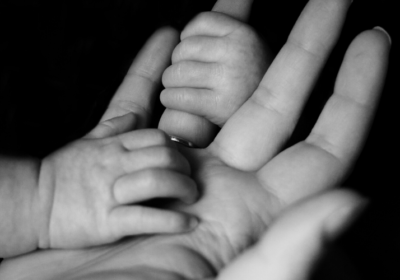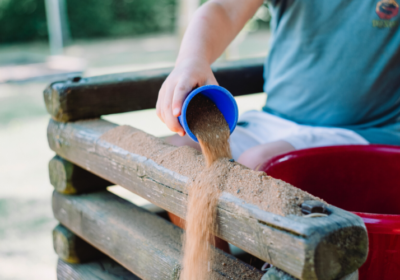“What are we doing today?” my teenager follows me around the house asking. I
am figuring this out day by day like the rest of the community, and I certainly have
fewer answers than questions myself right now. I don’t know when or how
people are returning to work. I am not sure if my husband is home for the next
two weeks or not. I am not sure if I will be wiping with toilet paper or napkins
with Desitin for the probable chapping that will occur from the lack of
quiltedness!
Here is the thing about kids who have already lost so much before coming into
our homes. They think it is highly probable that they can “lose everything” again.
Maybe you are thinking that 3% of people are dying, so that gives us a 97%
survival rate; trust me, they are not thinking that. They are thinking, “I already
lost my birth parents, and now I am going to lose this family.” In their little minds,
at best you have about a 50/50% chance of making it. Some of our kids have lived
in multiple homes/orphanages before they came into our homes, so these kids
are thinking our chances of staying alive through this are even slimmer than that.
Childhood is the formation of possibilities. The hard reality is that our children
have experienced unbelievable pain and loss, and they believe it can and will
happen again. The certainty that comes for children who have only lived in one
secure setting eludes them. They don’t understand it and think it naïve. The
more you try to convince them “everything will be ok”, the more upset or anxious
they get.
I wanted to put together a list of tips for your children and yourself right now.
Do NOT Watch the News Ever Around Your Younger Kids
I do think for some older kids and teens, you can pick a news program to watch
and watch it together; other than that, don’t watch news reports on your devices.
This is a suggestion for yourself as well. Research shows that the more news
people watch, the more anxious and sad they get. Younger kids don’t need to
watch any news. They don’t understand time and distance and percentages. All
it will do is increase their fear. You can communicate everything they need to
know. For example, you could say, “Right now there is this virus that is making
some people very sick. Most people are ok when they get this virus, and kids are
almost always ok. When people are already sick, this virus can be dangerous, so
they want us to stay home to keep these people safe. We are going to wash our
hands really well and have lots of fun while we are home together. Can you write
or draw some things you want to do while we are home? Can you draw all the
things we can still do together?”
Avoid Talking Too Much About the Virus and Address Underlying Fears
The truth is this virus has so many unknowns and so many developing facts.
Talking about it too much is like talking about a tornado that may or may not land
on your house. Instead of talking about the actual virus, talk about what your
children are afraid they will lose or what they are missing. Those are the areas to
dig deep in. Kids may be missing their teachers and understanding they won’t
have this specific teacher again next year. Kids may be missing their structure,
and the fluidity of time could be making them feel ungrounded. Dig deep! I am
often surprised at the things children tell me because they are often not what I
expected they would say. Don’t assume you know what your child is thinking. I
have a child at home who is missing a big birthday this year. There will be no
party and an unsatisfying present (since shopping has been so limited). Honestly,
the birthday wasn’t even on my radar. I assumed her feelings were about
something entirely different.
Maintain Structure
Make your beds, take daily showers, and change out of your pajamas and back
into them at night. All of these small things increase everyone’s feelings of
normalcy and must continue to happen for the entire family. Set your alarm, and
keep your bedtime routines. For about 4-5 days we didn’t have structure, and it
really felt like the world stopped spinning. In our house, I made a list of things I
want to do every day. My list included the following:
Take the dogs on a two-mile walk or go on a hike (rain or shine /
cold or hot)
Play board games
Cook a healthy meal
Don’t turn on the TV until the evening and go to bed on time
Work on organizing an area of the house
Work on one house project
Write (writing is how I organize my feelings)
Connect daily with a friend
Kids Need Projects Too
Kids need to feel helpful and useful during this time. Think about things they
would want to do that will make them feel like this. They could make a special
card for a neighbor who is shut-in during this time. If they are older, they may
have a project in mind they could do like re-painting the furniture in their
bedroom or going through their own closet. I go back to the three things that
every person needs to know to have a full life. They need to know they are seen,
they need to know they are loved, and they need to know they have a purpose.
They need a purpose for this time, and it needs to feel important to them.
Go Outside
I can’t emphasize this one enough. Our mood lifts quickly once we have forced
ourselves outside, rain or shine. Fresh air boosts the immune system, so that is
just an added benefit. Being outside also reduces cortisol levels (a stress
hormone) which makes us feel less anxious. Your kids may whine and complain,
but you know they will walk back inside the house happier, and so will you.
Enjoy this Time
How often have we wished we had more time for something? In a sense, we
should all be viewing this time sort of like a staycation. I think so many of us are
so concerned that it is making us waste this time together which is always a gift.
Time is always a gift. I think in this country we are chronically starved for time.
We all want more time with our kids, our spouses, etc. Take this opportunity and
enjoy this time.



